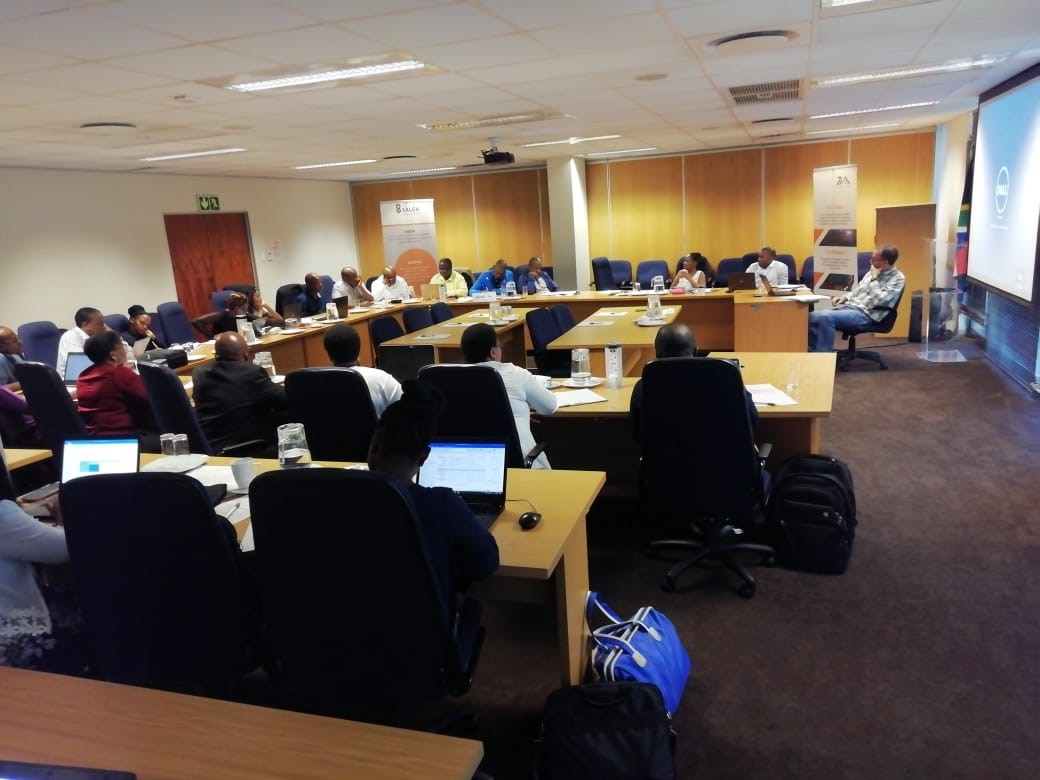On 15 November 2019, a diversity of local and national stakeholders, which included representatives from participating universities and municipalities, the HSRC, the Department of Science and Innovation, the Technology Innovation Agency and the South African Local Government Agency, met at the SALGA offices in Pretoria to launch the Local Innovation Advancement Tools (LIAT) community of practice. The LIAT community of practice brings together local and national actors with an interest in producing and sharing innovation information, with a particular emphasis on collectively learning how to assess and promote innovation for LED in their local contexts using the LIAT, among others.

The LIAT project, which began in 2012, initially focused on assessing and understanding the innovation landscape in the marginalised contexts such as the rural and informal settings. It has however evolved to focus on the promotion of innovations in all local contexts, hence the name change from the Rural Innovation Advancement Toolkit (RIAT) to LIAT, The Department of Science and Innovation funded the HSRC to develop the LIAT.
To date, the LIAT has been institutionalised in 16 participating local municipalities located in distressed rural districts. Six historically disadvantaged universities played an important role in the development of tools as well as sharing them with municipalities. The LIAT community of practice will involve these 16 municipalities, coordinated by the six universities, with a view of expanding to other municipalities and including other knowledge institutions with time.
‘Creating and coordinating vibrant local platforms where local actors can learn from each other, share ideas, experiences and knowledge, that is, both codified and tacit knowledge, is crucial in strengthening local innovation systems’, emphasised Ms Busisiwe Ntuli, Director of the Technology for Sustainable Livelihoods unit in the Department of Science and Innovation. Strong relationships among local stakeholders such as municipalities, universities, the private sector and civil society, are key in stimulating innovation and economic development at the local level, she added.
The success of these local innovation fora, according to Dr Sikhulumile Sinyolo from the HSRC, depends on their ability to yield local solutions for local problems, which requires access to fit-for-purpose and user-friendly information and decision tools. The LIAT community of practice, he added, is about empowered local actors engaged in deeper conversations and self-reflections, co-producing ideas and visions, and converting these into concrete strategies and plans, instead of waiting for outsiders to set the pace for LED.
Municipalities, as champions of local economic development, and local universities, as change agents, have an important role to play in facilitating these interactions at the local level. Strengthening the linkages of the six historically disadvantaged universities, respectively located in the participating municipalities, with their communities, so that they influence while being influenced by their contexts, was emphasised as key in the success of the LIAT community of practice. ‘A good partnership with universities especially concerning researching local issues is crucial because without evidence-based interventions, well-meaning projects will fall apart’, stated Mr Mzileni Nkosi, an LED Manager at the Enoch Mgijima local municipality. In particular, the universities are expected to lead in the exploration of local innovative initiatives with potential to catalyse the local economy, and recommend how these could be supported to reach their potential.
Among others, it was agreed that the role of the HSRC will be to coordinate the networking across universities and municipalities, and the consolidation of learnings. Further to the use of social media and other online platforms to share knowledge products and relevant experiences, the HSRC webpage link dedicated to innovation will be used to submit and share virtual publications. The HSRC will also facilitate regular science-into-policy roundtables, which will involve local stakeholders from different municipalities sharing their lessons with others, development practitioners, policy makers and other relevant interest groups.


